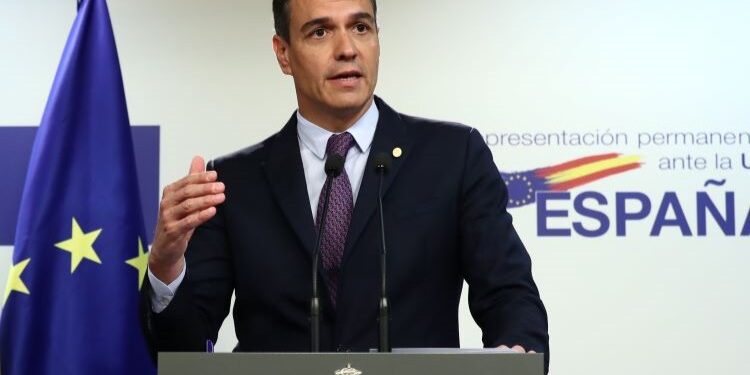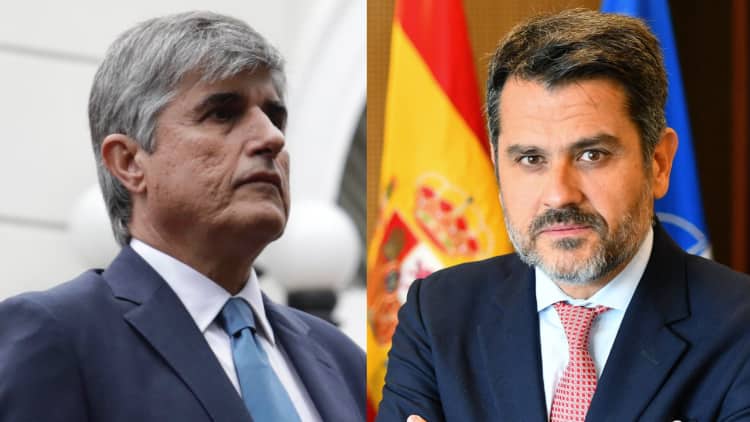Eduardo González
The President of the Government, Pedro Sánchez, will make a tour of the Western Balkans at the end of this month, after European leaders expressed, just over a month ago, their “unequivocal support” for the integration of this region into the EU.
According to Moncloa, Sánchez will travel to the Western Balkans on July 29, 30 and 31 and August 1. The tour will include Belgrade (Serbia), Sarajevo and Mostar (Bosnia and Herzegovina), Podgorica (Montenegro), Skopje (North Macedonia) and Tirana (Albania).
The tour coincides with important advances in the European perspective of these countries. On June 23, the EU-Western Balkans Summit was held in Brussels, where European leaders expressed their “unequivocal support for the integration of the Western Balkans into the EU” and discussed ways to “intensify cooperation in the face of common challenges arising from Russia’s aggression against Ukraine,” such as hybrid threats and disruptions in the energy and food markets.
The following day, at the European Council meeting, European leaders again expressed “their full and unquestionable commitment to the EU accession perspective of the Western Balkans”. The Council also recalled “the importance of reforms, in particular in the field of the rule of law, and specifically those related to the independence and functioning of the judiciary and the fight against corruption”, and urged partners in the region to “ensure the rights and equal treatment of persons belonging to minorities”.
The Council also expressed its readiness to grant Bosnia and Herzegovina the status of candidate country and, to this end, invited the Commission to report “without delay” to the Council on the implementation of the 14 key priorities set out in the Commission’s own Opinion (which include reforms in the areas of democracy, the rule of law, fundamental rights and public administration) in order for the European Council to decide again on the issue. In this regard, the European leaders urged “all political leaders” in Bosnia to “urgently complete constitutional and electoral reform, which will allow the country to move decisively forward on its European path, in accordance with the Commission’s Opinion”.
At the press conference following the European Council, Pedro Sánchez called for “reactivating, reviving and revitalizing the enlargement process” in the Balkans and announced that Spain had defended during the Brussels meeting “the suitability of also recognizing the candidate status of Bosnia and Herzegovina”.
Serbia and Montenegro have already started EU accession negotiations, while Albania and North Macedonia have had the status of candidate countries for eight and 17 years, respectively. Accession negotiations with Albania and North Macedonia began yesterday after several years of delays, blockades and vetoes.. This was made possible after the Macedonian Parliament agreed this weekend to amend the Constitution to overcome Bulgaria’s veto and after the ambassadors of the 27 (COREPER) reached an agreement this past Monday to begin talks immediately, starting with an Intergovernmental Conference at the highest level.
Through his Twitter account, the Minister of Foreign Affairs, José Manuel Albares, yesterday celebrated the start of negotiations between Albania and North Macedonia and conveyed Spain’s support “in this new stage that is opening”. He also extended his congratulations to his Albanian and Macedonian counterparts, Bujar Osmani and Olta Xhacka, respectively, for this “crucial step in the construction of our great European family”. The Prime Ministers of Albania, Edi Rama, and North Macedonia, Dimitar Kovacevski, traveled to Brussels yesterday to mark the start of formal negotiations on accession to the European Union, which must ultimately be accepted unanimously by the 27 Member States.
Serbia and Kosovo
The European Council of June 24 also reiterated “the urgency of achieving tangible progress in the resolution of pending bilateral and regional disputes, in particular the dialogue between Belgrade and Pristina to facilitate the normalization of relations between Serbia and Kosovo”.
Precisely, Pedro Sánchez himself expressed last February, during his first bilateral meeting at the Moncloa Palace with the President of Serbia, Aleksandar Vučić, Spain’s support for a solution to the Kosovo conflict “based on Belgrade-Pristina dialogue”, while also transferring his support for Serbia, a candidate for EU membership since 2012, to continue making progress on the priorities set by the European Commission. “Serbia, as it did with its recent constitutional reform, must continue to show its commitment to reform in fields such as the rule of law or the environment,” he said. “It can count on our support and companionship on that path,” he added.
Kosovo unilaterally proclaimed its independence from Serbia on February 17, 2008, but the new state has not been recognized by Serbia or by many countries, including Spain (as well as Greece, Cyprus, Slovakia and Romania, within the EU). This fact has helped to considerably improve relations between Madrid and Belgrade, which has repeatedly thanked Spain for being the only “big country” in the EU that has not recognized the independence of its former province.
In 2011, Serbia’s leaders began negotiations for the normalization of relations with Kosovo, thanks to mediation from Brussels and in the context of Serbian aspirations to join the EU. However, the dialogue was completely blocked between 2018 and 2019. Serbia is aware that the lack of an agreement with Kosovo harms its aspirations to join the European Union and is therefore trying to find a formula acceptable to it. For its part, Kosovo knows that without an agreement with Serbia it will not be able to approach the EU or join the UN. For these reasons, the two sides resumed dialogue in Brussels in July 2020.







